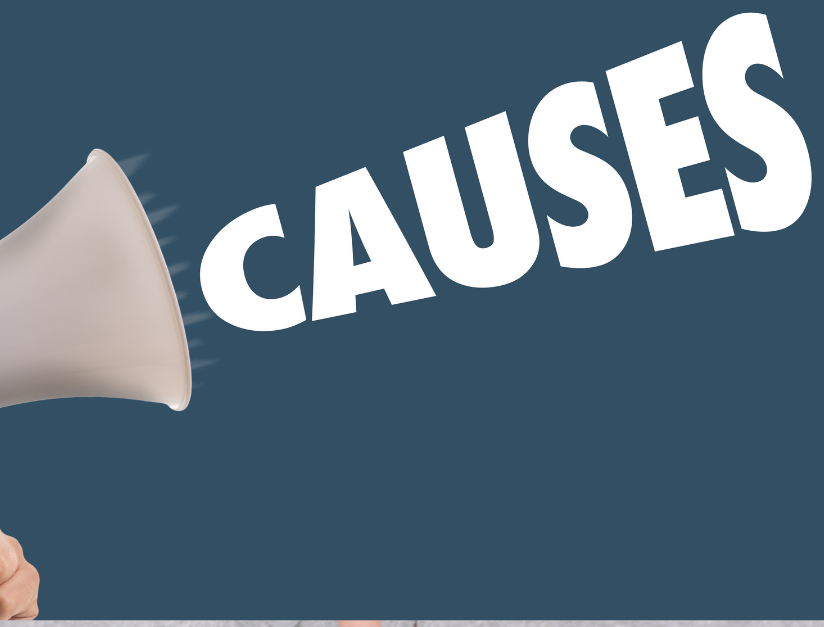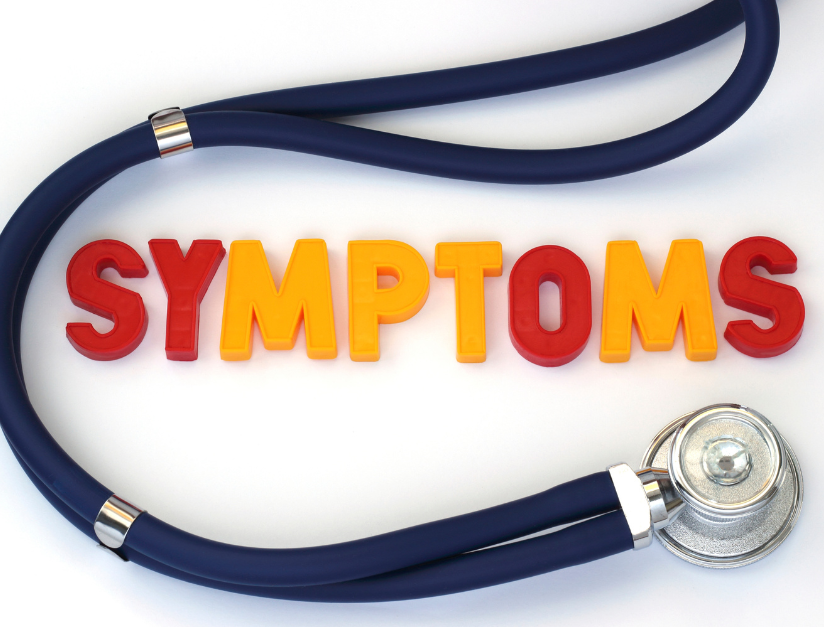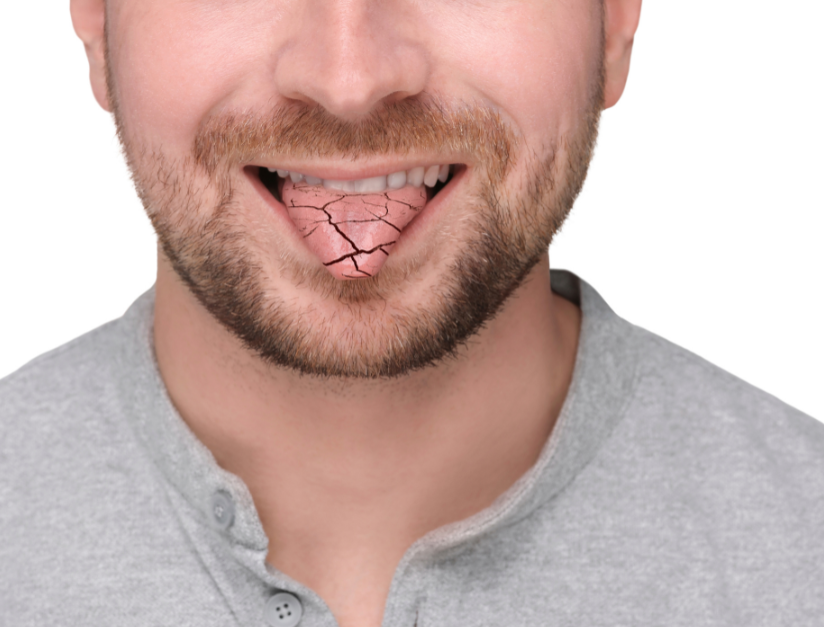What is Xerostomia (Dry Mouth)?
Dry mouth, medically known as xerostomia, occurs when your salivary glands don’t produce enough saliva. Saliva is essential for chewing, swallowing, digestion, and protecting your teeth from decay. Without it, oral health can quickly decline, and everyday activities like speaking or eating can feel uncomfortable.
At Royal Oral & Dental Clinic, we frequently see patients experiencing mouth dryness, especially at night, and help them manage it with personalized treatments.

Common Causes of Dry Mouth
Understanding the dry mouth causes is the first step to finding relief. Some common reasons include:
- Medications – Many prescription drugs (antidepressants, antihistamines, blood pressure meds) reduce saliva production.
- Medical conditions – Diabetes, Sjögren’s syndrome, and autoimmune diseases often affect salivary glands.
- Cancer treatments – Radiation or chemotherapy can damage saliva glands.
- Lifestyle factors – Smoking, alcohol, caffeine, or dehydration often trigger mouth dryness.
- Age-related changes – Saliva and oral health decline naturally with age.
Tip: If you frequently experience mouth dryness at night, it may be linked to breathing through your mouth or certain medications taken before bedtime

Symptoms of Dry Mouth (Xerostomia)
A dry mouth can feel more than just “thirsty.” Look out for these signs:
- Constant feeling of dryness or stickiness in the mouth
- Difficulty speaking, swallowing, or chewing dry foods
- Cracked lips or burning sensation on the tongue
- Frequent sore throat or hoarseness
- Increased risk of cavities and gum disease
If you notice these symptoms, consult a dentist. At Royal Oral & Dental Clinic, we identify underlying causes and suggest the right treatment plan.
Why Saliva and Oral Health Go Hand in Hand
Saliva plays a vital role in maintaining your oral health:
- Neutralizes acids that damage teeth
- Washes away food particles and bacteria
- Aids in digestion
- Protects tooth enamel from decay
When saliva is lacking, teeth and gums become more vulnerable to infections, cavities, and bad breath. Protecting saliva and oral health is essential for long-term dental wellness.
Remedies for Xerostomia (Dry Mouth)
Looking for how to treat dry mouth naturally or medically? Here are some proven remedies:
Lifestyle Remedies
- Drink plenty of water throughout the day.
- Use sugar-free chewing gum or lozenges to stimulate saliva.
- Limit alcohol, caffeine, and tobacco.
- Use a humidifier at night to reduce mouth dryness.
Medical Treatments
- Saliva substitutes and mouth sprays recommended by your dentist.
- Prescription medications that stimulate saliva flow.
- Dental treatments to protect teeth from decay caused by dryness.
At Royal Oral & Dental Clinic, we provide personalized remedies for xerostomia based on the root cause—whether it’s medication, lifestyle, or a medical condition.
Preventing Mouth Dryness at Night
Nighttime dryness is one of the most common complaints. Here’s how you can manage it:
- Sip water before bedtime and keep a glass nearby.
- Avoid alcohol or smoking in the evening.
- Use nasal strips or consult a doctor if mouth breathing is the cause.
- Apply a dental-approved moisturizing gel before sleep.
When to See a Dentist for Dry Mouth
Occasional dryness is normal, but persistent xerostomia needs attention. Seek professional care if:
- You struggle with constant dryness despite home remedies.
- Cavities or gum infections are increasing.
- Speaking and swallowing are becoming difficult.
At Royal Oral & Dental Clinic, we not only treat dry mouth but also help prevent future complications through routine dental care.
How Royal Oral & Dental Clinic Can Help
Our clinic provides:
- Comprehensive dry mouth assessments
- Customized saliva-boosting treatments
- Preventive dental care to protect teeth and gums
- Lifestyle guidance for long-term relief
Book your consultation today at Royal Oral & Dental Clinic and restore comfort to your smile.

FAQs About Dry Mouth (Xerostomia)
1. What are the main causes of dry mouth?
Dry mouth causes include medications, dehydration, smoking, medical conditions like diabetes or Sjögren’s syndrome, and side effects of cancer treatments. Aging and lifestyle choices also contribute.
2. How can I treat dry mouth naturally?
You can treat dry mouth by drinking water frequently, chewing sugar-free gum, using a humidifier at night, and avoiding alcohol and caffeine. These simple remedies for xerostomia help stimulate saliva flow and improve oral comfort.
3. Is dry mouth at night normal?
Occasional mouth dryness at night is common, often due to sleeping with your mouth open. However, persistent dryness may signal a medical or dental concern. If it continues, consult a dentist for proper treatment.
4. Can dry mouth damage my teeth?
Yes. Saliva protects teeth by washing away bacteria and neutralizing acids. Without enough saliva, the risk of cavities, gum disease, and bad breath increases. That’s why saliva and oral health go hand in hand.
5. When should I see a dentist for xerostomia?
Visit a dentist if dry mouth persists despite home remedies, if you struggle with swallowing or speaking, or if you notice an increase in cavities. Professional remedies for xerostomia can prevent long-term dental problems.
6. What medical treatments are available for dry mouth?
Dentists may recommend saliva substitutes, prescription medicines to boost saliva, or fluoride treatments to protect teeth. At Royal Oral & Dental Clinic, we provide customized solutions for long-lasting relief.
Contact no = +91 90268 02954
Website = https://drdeepeshgupta.com/

